On March 18th, 2020, we introduced Revision Policies to our platform: a new way for Talent and Clients to better understand what to expect when it comes to revisions before a project kicks off. After constructive feedback from our Talent community, we decided to temporarily disable Revision Policies on March 30th, 2020, to give us the time to make changes that made sense for both Talent and Clients. Those changes have finally arrived, and we’re excited to share them with you!
For a guided walk-through of these changes, you can watch this webinar, hosted by Julianna Jones, Manager, Sales Operation & Talent. Otherwise, read on!
In this article
- Flexible Revision Policies
- Templates Have a New Home
- Create and Edit Proposal and Revision Policy Templates Together
- What will Clients see?
- How can you get paid for revision-related work?
- Want to Learn More?
Flexible Revision Policies
We know that not every project is the same, and the dynamic between Client and Talent can change and evolve from project to project. For this reason, among others, we’ve decided to reintroduce Revision Policies, but in a more flexible way. Now, Talent can write their own Revision Policies, free-form, when auditioning for a job.
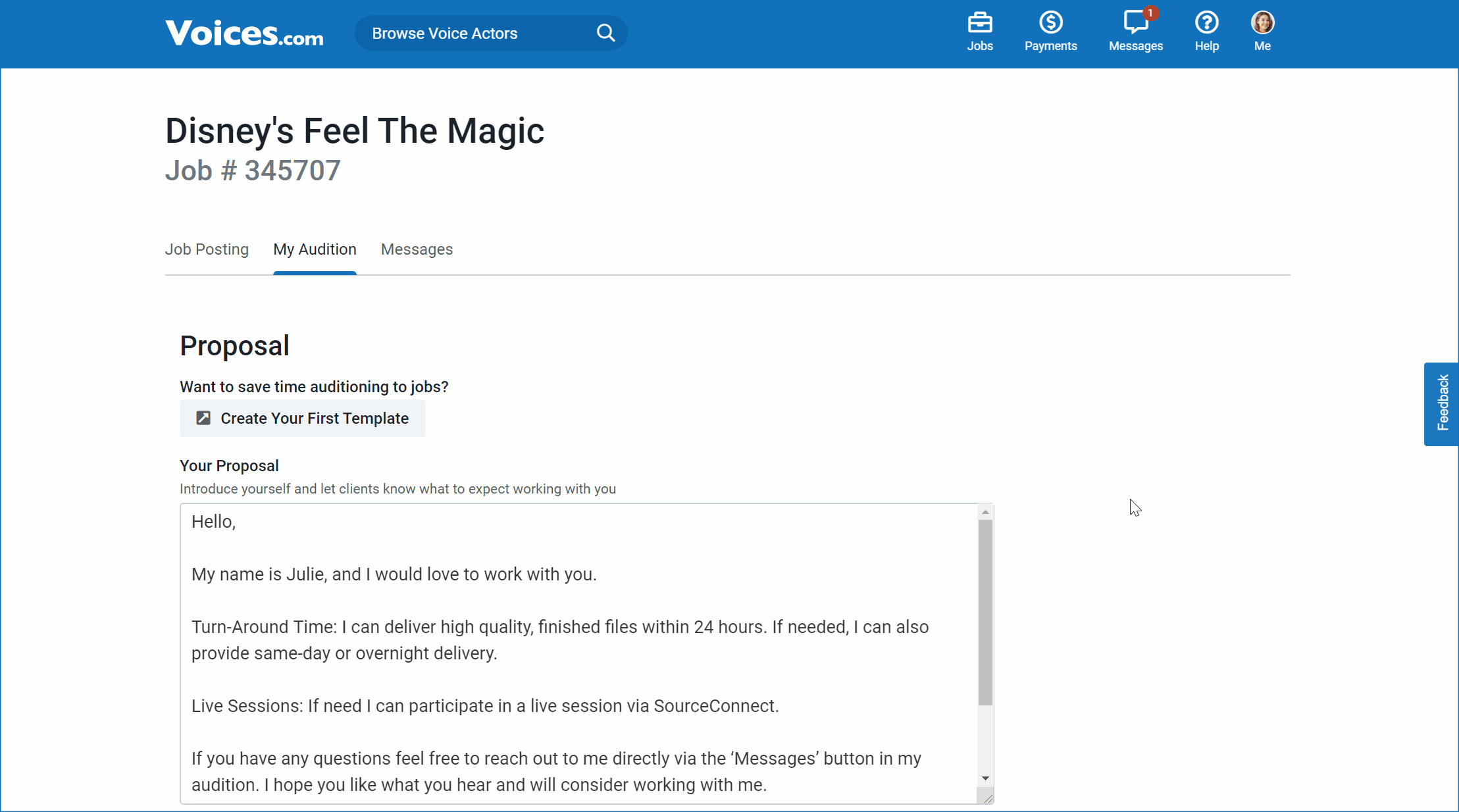
This new ‘Your Revision Policy’ section of the ‘My Proposal’ page of a job audition is completely optional and allows you as Talent to write a Revision Policy that makes sense for you and the job. Unsure of what to include in your Revision Policy? Then read this new article: How to Write a Strong Proposal. In it, we outline what to include in a strong Proposal and clear Revision Policy.
Like before, you can preview your audition, including your Proposal and Revision Policy, to get a sense of what the Client will see when they review your submission.
That’s it! Simple and effective. We hope these changes will allow you to set Revision Policies that meet your needs and the needs of the job.
But what if you’ve got a fairly standard Revision Policy that doesn’t change much from job to job? Good news, we’ve improved how you create and manage Templates to help you in just that kind of situation!
Templates Have a New Home
Before, in order to access your Proposal Templates, you had to navigate to the ‘Messages’ section of your account. Now, we’ve made your Templates easier to find, putting them in the ‘Me’ drop-down of the top navigation bar as ‘Templates.’
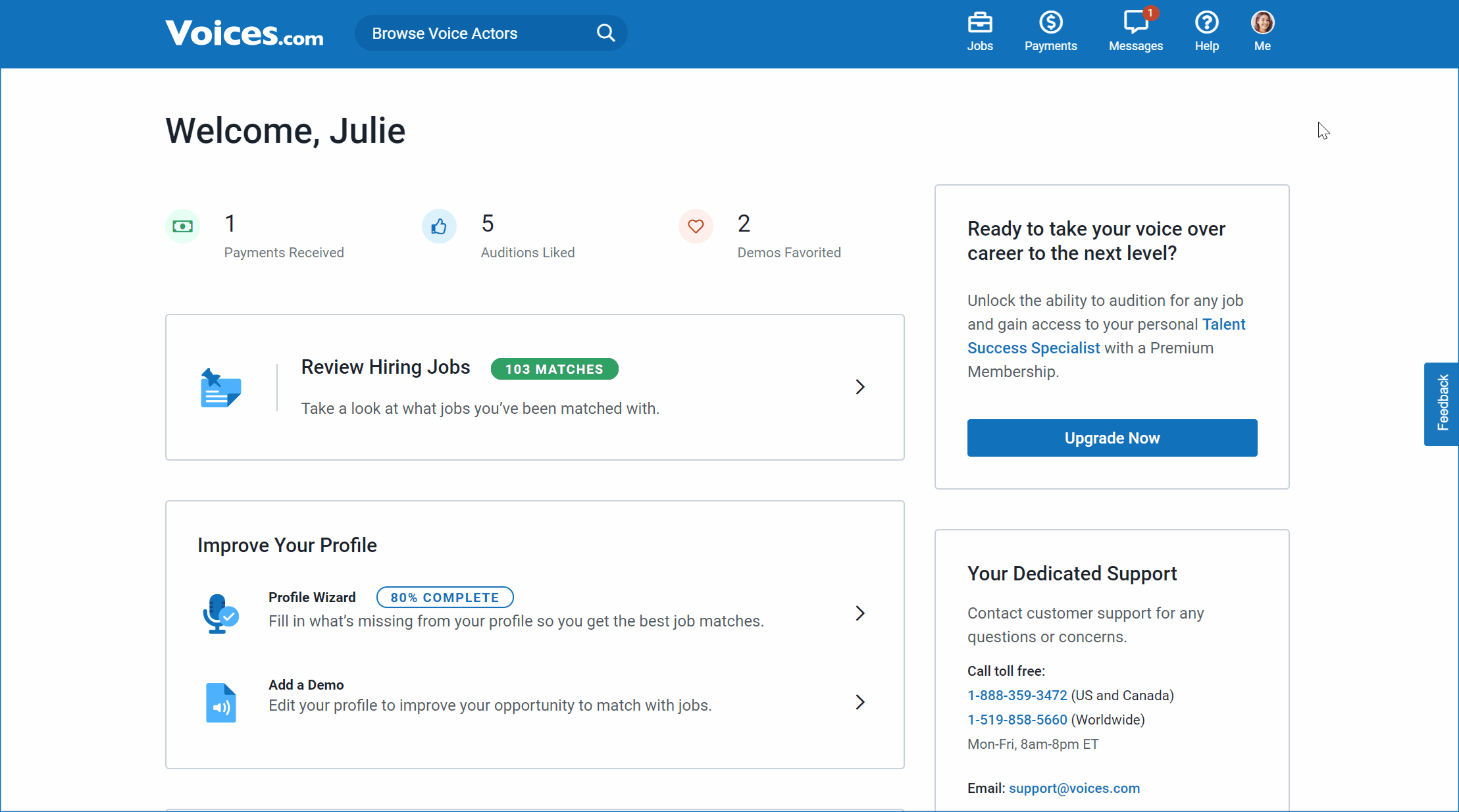
Create and Edit Proposal and Revision Policy Templates Together
From the ‘Templates’ page, you can see a list of all the Templates you’ve created so far. Here you can edit or delete those Templates, or you can create a new one.
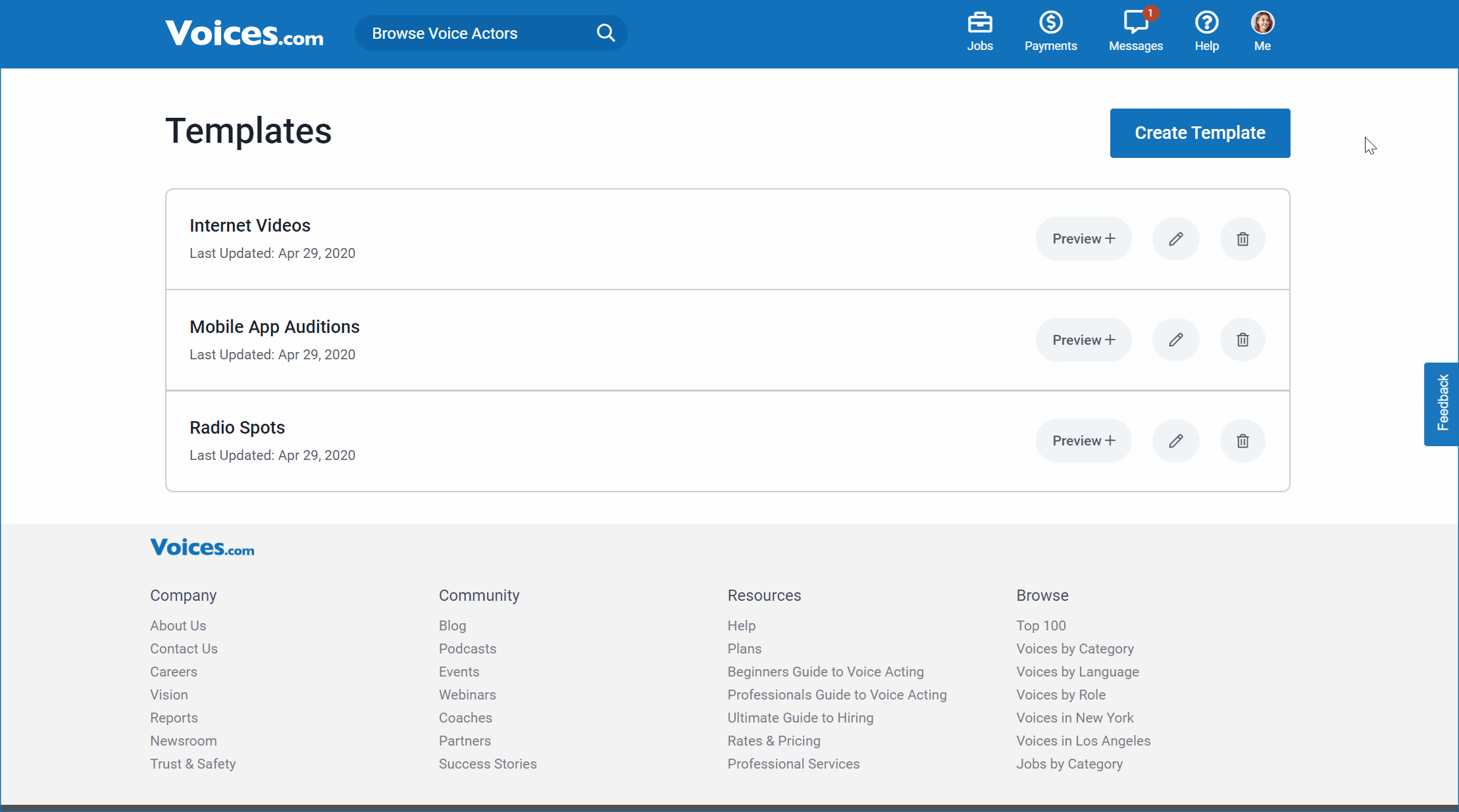
When creating a new Template, you’ll notice that you can now add a Revision Policy. Once saved, you can use Templates as part of any job audition moving forward.
Looking to create your own Templates but don’t know where to start? We’ve got you covered. When creating a new Template, both the Proposal and Revision Policy sections will automatically be populated with default copy that can be used as a framework or reference for your own Templates:
Proposal Template (Default)
Hi [client name],
My name is [your name], and I would love to work with you.
[Give a brief overview of your experience and/or any past relevant projects here].
Turn-Around Time: I can deliver high quality, finished files within [x hours/days]. If needed, I can also provide same-day or overnight delivery.
Live Sessions: [If you are able to provide live directed sessions via SourceConnect, Skype, ipDTL, ISDN, or phone patch, etc. please indicate here]
Equipment: My equipment includes [microphone, software, etc.]
If you have any questions feel free to reach out to me directly via the ‘Messages’ button in my audition. I hope you like what you hear and will consider working with me.
[Salutation],
[Your name]
Revisions Policy Template (Default)
Performance Mistakes: Mispronunciations or missing words are fixed at no charge.
Artistic Edits: One round of feedback concerning pacing or tone is included at no charge. I typically charge [$X] for each round afterwards.
Script Rewrites: One round of rewrites, that are less than 10% of the final script, is included at no charge. Additional rounds typically cost [$X for each round afterwards or X% of the original budget]. Rewrites beyond 10% will be quoted upon request.
You can tweak this copy or erase it completely to write your own Template from scratch. This default copy includes what we suggest a Proposal and Revision Policy should include.
If you’re applying to a job without an existing Template, this default copy will also appear in the audition form for your reference.
What will Clients see?
After you submit your audition, Clients will be able to review both your Proposal and Revision Policy by clicking the ‘Open Proposal’ button on the job ‘Responses’ page, just like they could before.
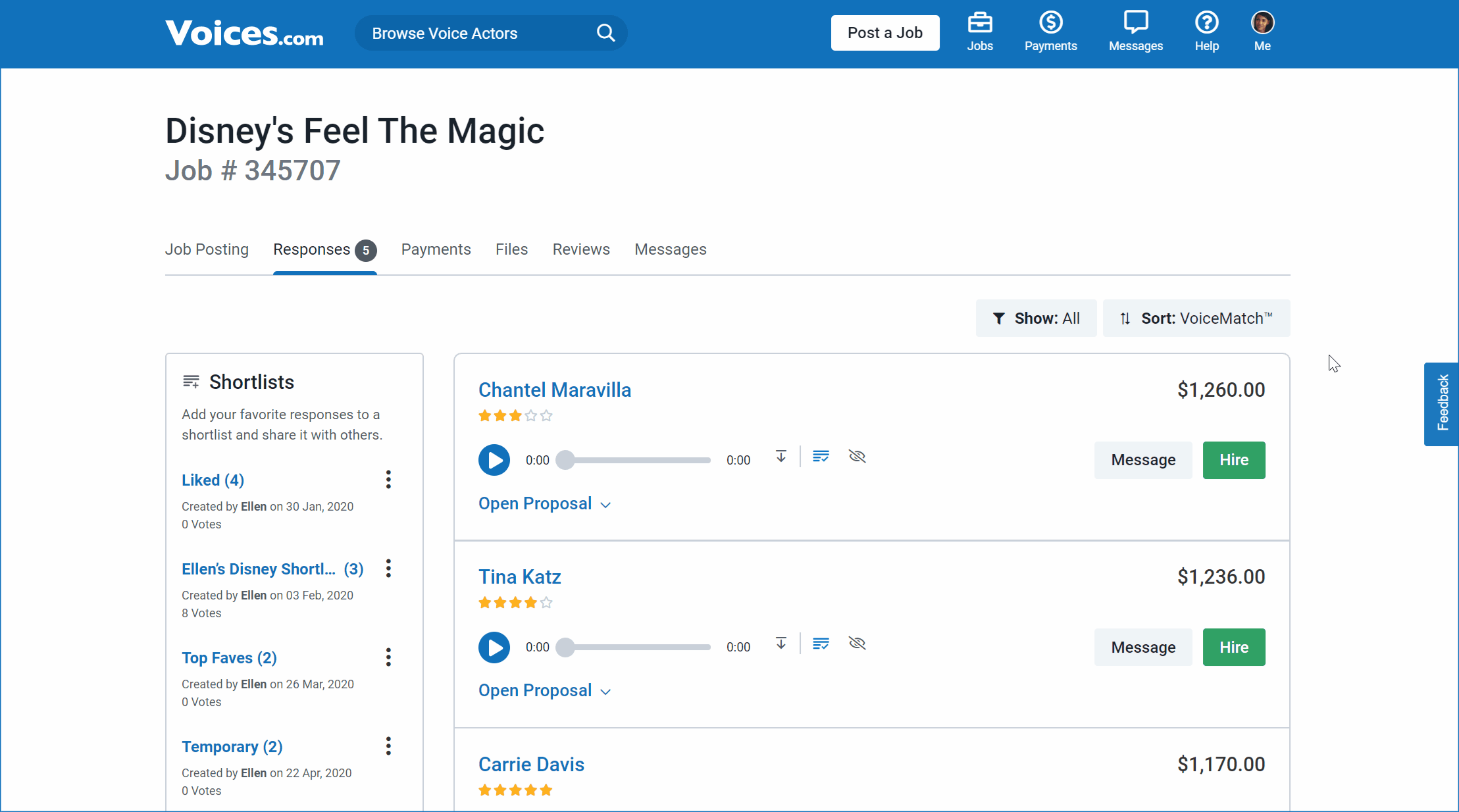
How can you get paid for revision-related work?
Just like before, Clients can ‘Add a Payment’ to existing jobs for work related to revisions or for work not covered under the original budget by adding payments.
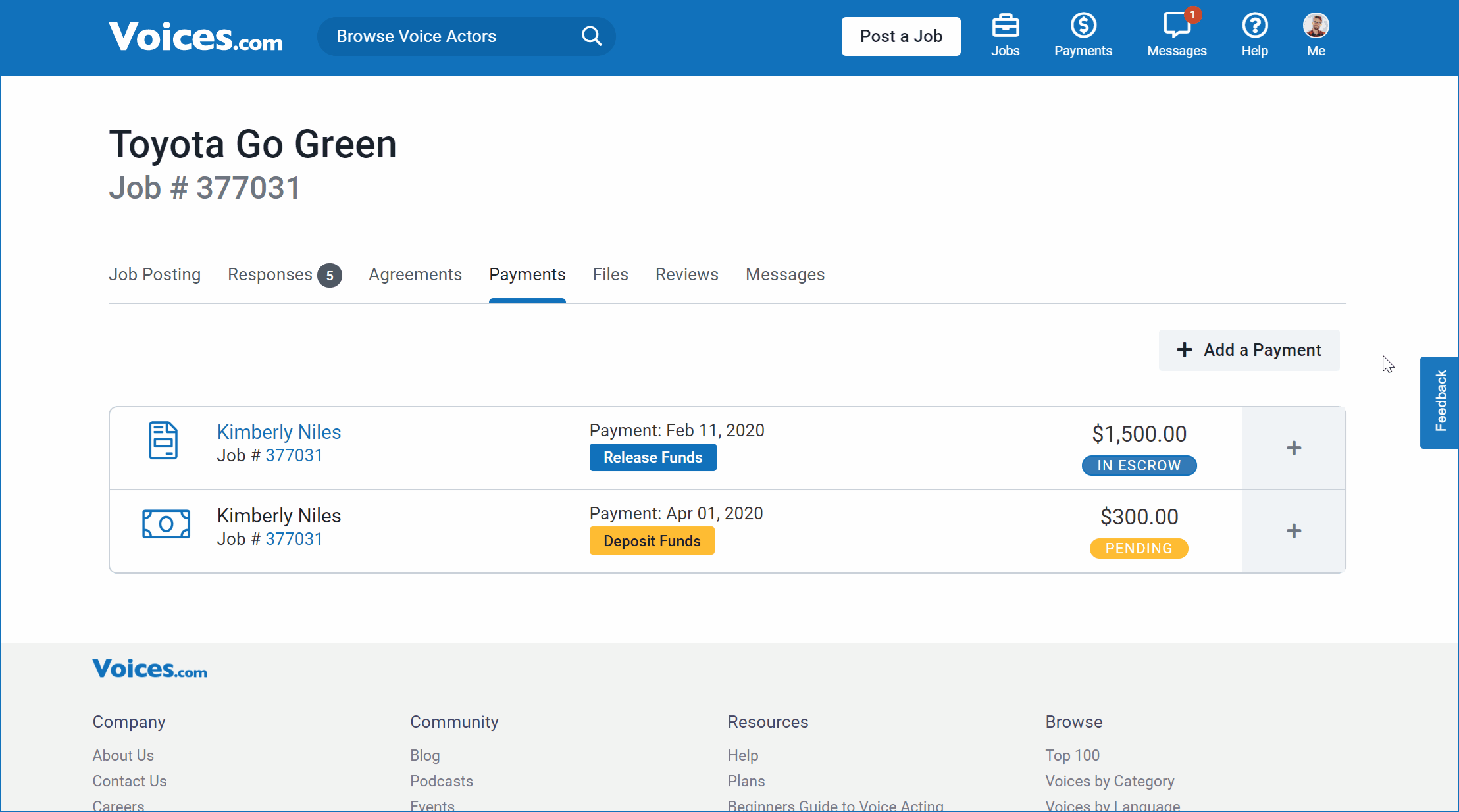
We encourage you to let Clients know of this functionality should they have questions or be unsure of what to do. If they need more support, direct them to our support page.
Want to Learn More?
If you’ve got questions about Revisions or Templates, you can review our detailed FAQ articles: Revision Policies and How do I create an audition Template? Or you can contact a member of our Customer Support Team at any time via our support page or by emailing [email protected].
We hope these updates to Revision Policies and Templates make auditioning for jobs more transparent and easier to do. If you’ve got any feedback regarding this or any other feature on Voices, please send it to [email protected].
Happy auditioning!
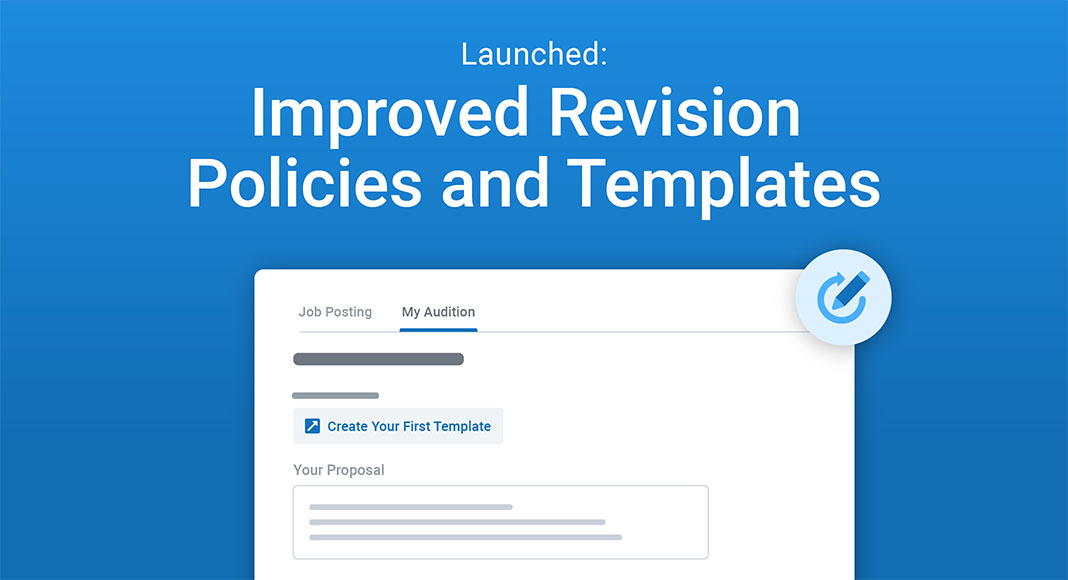
Leave a Reply